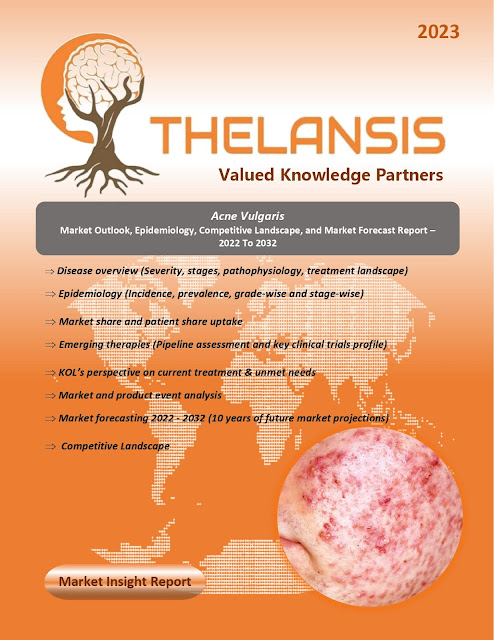Limb-Girdle Muscular Dystrophy (LGMD) – Market outlook, Epidemiology, Competitive Landscape, and Market Forecast Report – 2020 To 2030
Limb-Girdle Muscular Dystrophies (LGMD)
are a clinically heterogeneous group of disorders presenting a spectrum of
disease severity ranging from severe childhood-onset muscular dystrophy to
adult-onset dystrophy. LGMDs includes both dominant and recessive forms. With
the current classification system for LGMDs, 33 recessively (LGMD2) and
dominantly (LGMD1) inherited forms of LGMD have now been identified.
Interestingly, two LGMD types, with defects in the calpain three and desmin
proteins, exist in both recessive and dominant forms. More than 90 percent of
all people with the disease have any recessively inherited conditions called
Type 2 (read more about inheritance patterns under the heading Heredity). LGMD
typically manifests itself during childhood or early adulthood. Babies, young
children, and the elderly, on the other hand, can be affected. The severity of
the disease varies depending on the subtype. Some subtypes are mild, causing
only muscle pain. Others can result in increased weakness and mobility loss.
The prevalence of Limb-Girdle Muscular
Dystrophies (LGMD) cases varies from 15,750 to 18,500 patients in the USA.
The competitive
landscape of Limb-Girdle Muscular Dystrophy (LGMD) includes country-specific
approved and pipeline therapies. Any asset/product-specific designation or
review and Accelerated Approval are tracked and supplemented with analyst
commentary.
KOLs insights of Limb-Girdle
Muscular Dystrophy (LGMD) across the 8 MM market from the center of Excellence/
Public/ Private hospitals participated in the study. Insights around current
treatment landscape, epidemiology, clinical characteristics, future treatment
paradigm, and Unmet needs.
Limb-Girdle
Muscular Dystrophy (LGMD) Market
Forecast: Patient Based Forecast Model (MS. Excel Based Automated
Dashboard), which Data Inputs with sourcing, Market Event, and Product Event,
Country specific Forecast Model, Market uptake and patient share uptake, Attribute
Analysis, Analog Analysis, Disease burden, and pricing scenario, Summary, and
Insights.
S. No Asset Company Stage
1 ATA-100 Atamyo
Therapeutics Phase 1
2 Deflazacort PTC
Therapeutics Phase 3
3 ATYR1940 aTyr
Pharma, Inc. Phase 2
4 LION-101 Asklepios
Biopharmaceutical, Inc. Phase 2
5 SRP-9003 Sarepta
Therapeutics, Inc. Phase 1




Comments
Post a Comment